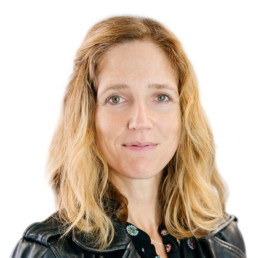
Written by Ellie Garraway
Chief Executive of Grit Breakthrough Programmes, a youth charity that delivers personal development and coaching programmes in schools, colleges and universities across the UK.
The odds are that, when you look at the website or mission statement of a youth charity, school, college or university, or when you come across articles, blogs and posts about young people and education, you’ll see the word potential. For those of us who work with young people it is vital that we ‘support young people to fulfil their potential’ and yet it’s a word that has become so much of a cliché we’ve forgotten what it really means.
I like this early definition of it: ‘That which is possible, anything that may be’. And at Grit we see that come alive in the course room. The young people recognise that their belief that ‘I’m a nobody’ (for example) is not, actually, a fact. They come to see there are so many more empowering ways of interpreting themselves and their lives. It is a lightbulb moment that can transform young people’s futures and is a privilege to witness.
The Latin root is: potencia ‘power, might, force’. When we become liberated from the limitations of the past and understand the power we have within ourselves, we can make things happen in our lives that previously we believed were beyond our control. “Before Grit I never felt able to challenge a professional on how they were reacting to an incident or dispute, or how they were being with a particular student. It was almost as if I was letting them dictate how I did my job. Now I’m able to hold them to account.”
THIS is what gets me out of bed in the mornings.
But recently it has occurred to me that there is a darker, oppressive, almost tyrannical side to potential.
Over the last two years in particular most of us have been comparing our life under Covid with what our ‘best life’ is supposed to look like. But it’s not just the pandemic. The culture of self-improvement can create the assumption that no matter what life throws at you, you can still choose to be ‘happy.’ These expectations can leave us feeling that the imperative to ‘fulfil our potential’ is a pretty large stick to beat ourselves with.
This is certainly what our young people are telling us. It’s bad enough that they’ve had to experience the anxiety, trauma, disruption of living through the pandemic. But they are also having to live with the narrative of ‘catch up’: the ‘wasted years,’ ‘the cohort with fake grades,’ ‘the ones who’ve fallen behind.’ In some ways this narrative is as damaging (if not more) than the experience itself. When we think about potential as another way of talking about the gap between our current reality and the way we think it should look, it can be paralysing.
In his book ‘Groundedness’ Brad Stulberg talks about the notion of ‘heroic individualism’. This is the idea that only by giving everything to our work, our sport, our latest endeavour, our every waking moment and leaving ourselves empty, can we truly know that we’ve reached our potential.
But actually, this can create a really unhealthy approach to life, one where we constantly need to feel that the level of challenge is as high as possible. Here, ‘Fulfilling potential’ is not about being slow, thoughtful, restful, still, ordinary – quite the opposite. It becomes accepting this as a generic cultural norm about what potential looks like and judging ourselves against it: ‘I should get A grades’, ‘have a huge list of enriching activities on my CV’, ‘get a graduate-level job’ (whatever that means). Only if I appear impressive to others can I truly believe that I’ve really nailed this potential thing.
But what happened to allowing our own life to unfold before us like the unravelling of a great mystery? What happens when the way we measure ourselves is based on what feels right and true, rather than what will most impress others? Isn’t this what potential is all about?
So, while so many of us in the charity sector are driven by our passion for giving young people the opportunity to fulfil their potential – perhaps it’s time to really challenge whose notion of potential we have bought into – for young people and for ourselves.
Potential may well be ‘power, might and force’ but like any form of power it’s how you use it that counts. Let’s give that power to young people so they can reclaim their potential, decide what it means for them. After all, whose potential is it anyway?

